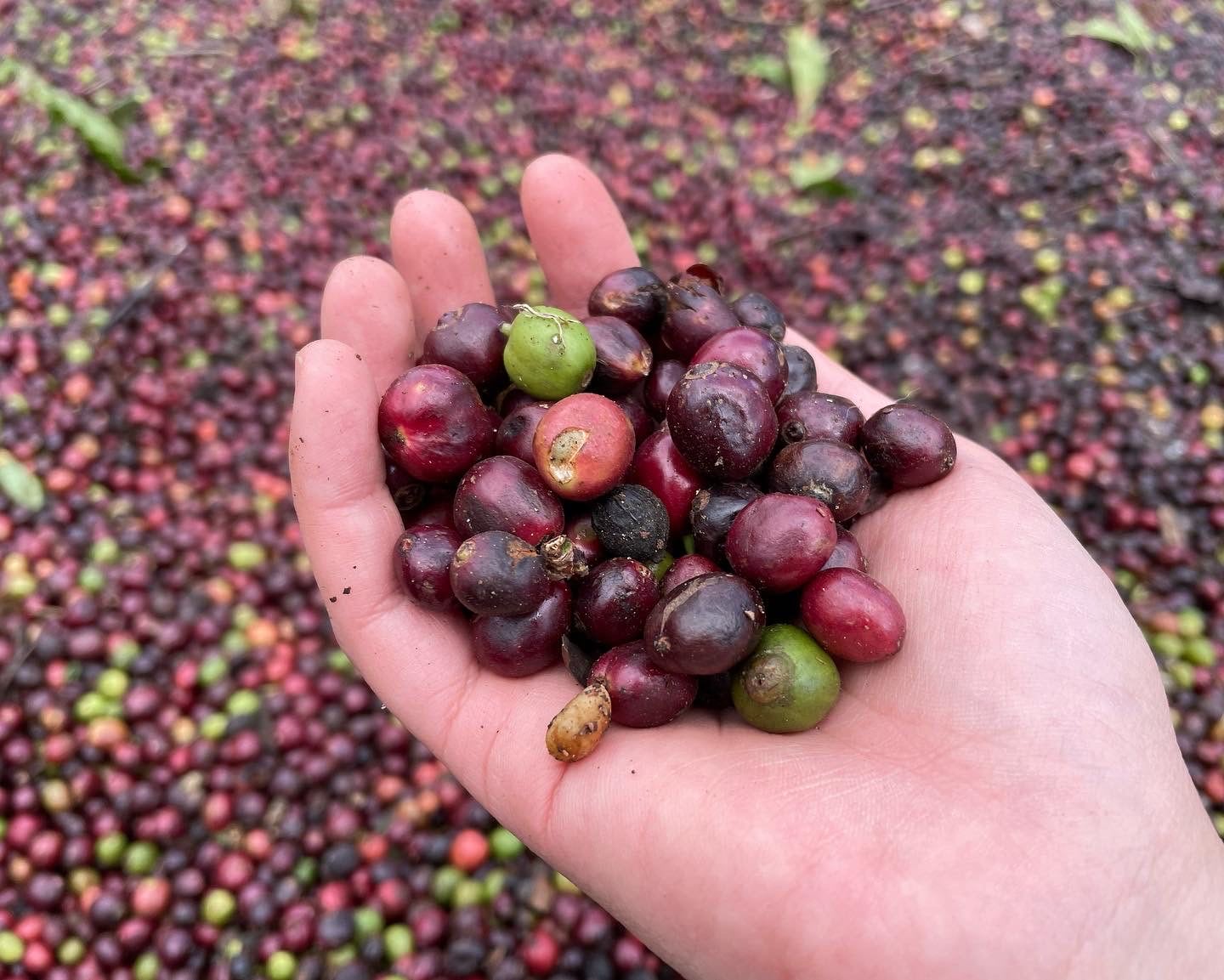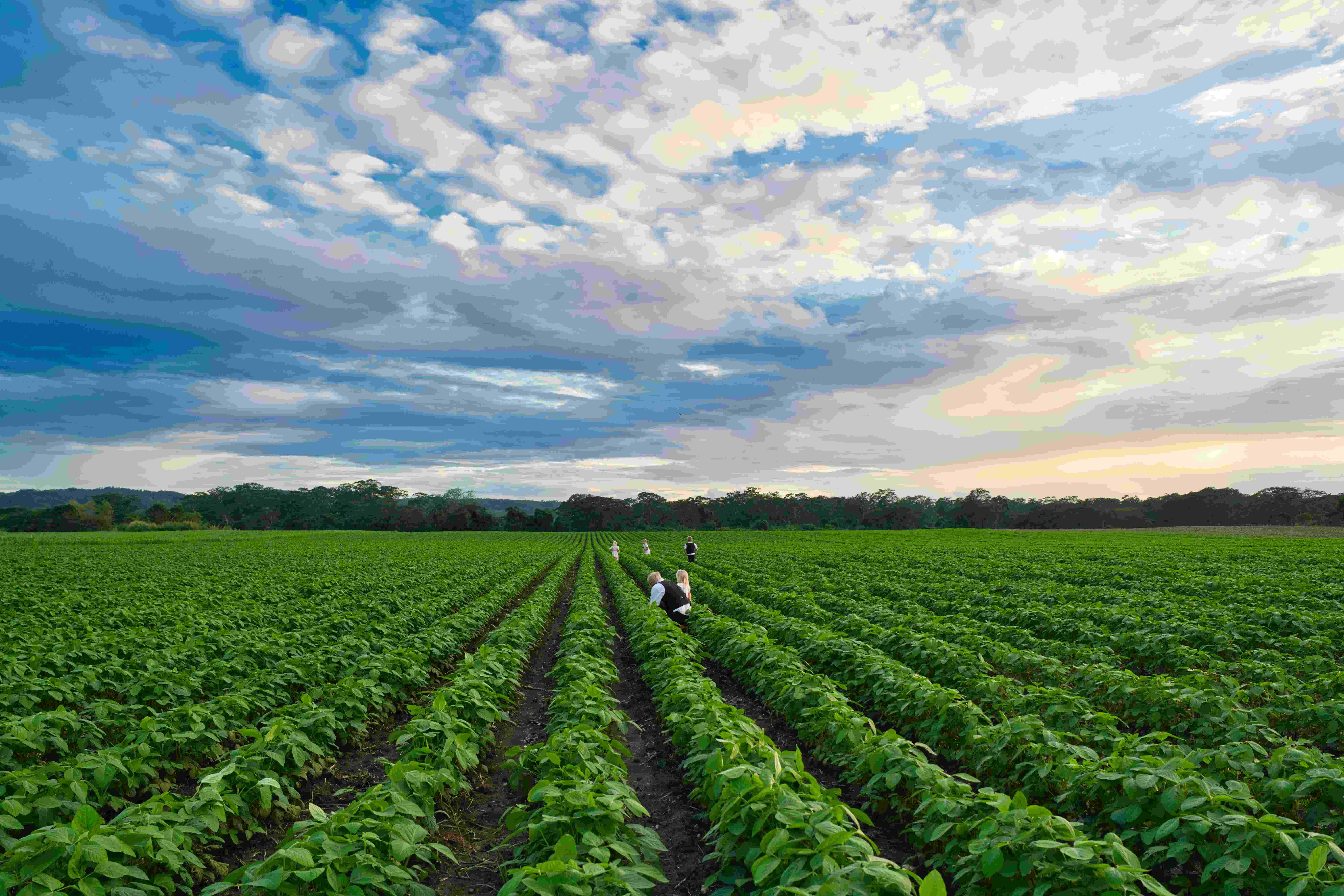Better production practices key to minimising impact of vegetable oils – IUCN report
Gland, Switzerland, 7 May 2024 (IUCN) – A new report from the IUCN Oil Crops Taskforce, released today, assesses the future environmental, economic and social impact of the production, trade and the consumption of vegetable oils. The Task Force was established by the IUCN Secretariat, the IUCN Species Survival Commission, the IUCN Commission on Ecosystem Management and the IUCN Commission on Environmental, Economic and Social Policy, as a result of Resolution 61 adopted at the IUCN World Conservation Congress 2016.
The report, published by IUCN in collaboration with the Sustainable Nutrition Scientific Board, found that growing demand for vegetable oils could translate into the conversion of natural areas into farmland, negatively impacting global biodiversity, particularly where biodiverse environments are displaced. But there is potential to limit harms to nature by improving production methods, while meeting a growing global demand. According to the report, Exploring the future of vegetable oils, the negative impacts on biodiversity are closely tied to production methods regardless of the type of oil crop. For instance, where and how an oil crop is planted, owned, managed, traded and consumed, as well as the scale and the specific landscape within which these crops are produced, all influence its impact.
“Vegetable oil production plays a crucial role in helping feed a growing population, but it also has significant environmental, social, and economic impacts, especially when pursued on an industrial scale. These impacts include deforestation, loss of species and ecosystems, agrochemical pollution and climate change, all growing as demand for vegetable oils soars. But what this report shows is that oil crops themselves are not inherently good or bad, and positive environmental and social outcomes can be achieved with all oil crops. With the right investment, planning, policies and improved crop production methods, oil crop areas can offer substantial opportunities for reducing biodiversity loss and restoring nature,” said Erik Meijaard, report lead author and co-chair of IUCN’s Oil Crop Task Force.
Globally, vegetable oil crops* account for over one-third of all agricultural lands, and the areas allocated for oil crops are continuing to expand. In 2021, 252 million tons of oil were produced for a population of nearly 8.5 billion people. To feed the projected population of 9.7 billion in 2050 (assuming no further oil is redirected for biofuel, animal feed or in industry)** production output will need to rise by 14% to 288 million tons.
The land expansion needed to meet this demand will harm biodiversity if ecologically diverse areas are replaced with plantations. The scope for such land use changes is highest in Africa and South America, while boreal ecosystems in Russia and Canada are also under increasing pressure.
However, production could be increased while minimising the expansion of crop land, according to the authors. For example, smallholder oil palm growers attain only about 42% of the potential yield, and closing this yield gap could increase production on existing land.
“It is clear that if current agricultural practices prevail, we will see forests, shrub, grass and freshwater ecosystems continue to be converted into farmland. This could cause further declines in populations of animals, fungi and plants. Conversely, if oils are produced using improved farming methods, the gains for biodiversity, livelihoods and human wellbeing could be enormous,” said Jon Paul Rodriguez, Chair of the IUCN Species Survival Commission.
"In the discussion on oil crops it is crucial to consider people and human rights. People need oils and fats as part of healthy diets, but the production of these has often severely undermined people's rights. Land grabbing, health impacts of agrochemical use, forced and child labour and loss of indigenous lands are among the many such negative impacts. On the other hand, millions of people earn a living from vegetable oil production, and could produce more with the right kind of investments," said Kristen Walker Painemilla, Chair of the IUCN Commission on Environmental, Economics and Social Policy.
"The new report shows the complexity of interactions between environmental, social and economic impacts from vegetable oil production in different places, and how this can affect a wide range of environmental services, such as water provision and carbon sequestration. Finding the right balance in crop production that spares land and avoids natural ecosystem loss, while considering the people that live in these landscapes, is tricky, but there are some solutions that have greater benefits than others," said Angela Andrade, Chair of the IUCN Commission on Ecosystem Management.
To estimate the potential benefits of conservation and restoration in oil crop production zones, the report applied the Species Threat Abatement and Restoration (STAR) metric to global areas where 12 different oil crops are grown. The STAR metric, which assesses the potential of actions in specific locations to contribute to reversing global biodiversity loss, suggests that these zones have a critical role to play in helping deliver the Kunming-Montreal Global Biodiversity Framework (GBF) – the international agreement committing nations to halt and reverse nature loss by 2030.
Conservation action in these areas could deliver 2% of the total global opportunity for reducing the extinction risk of threatened birds, mammals, and amphibians through addressing threats, and restoration actions in oil production areas could achieve 5% of the global opportunity available through restoration – although these figures vary depending on the region, with some areas particularly in Africa and Asia representing a greater potential for nature restoration. Conservation and restoration of habitat within the coconut production zones alone could deliver an estimated nine and 12 times more reduction in global extinction risk than would a similar effort applied randomly across the world.
Looking to the future of vegetable oil crops, the report states that production and management practices should align with the United Nations Sustainable Development Goals, the goals and targets set by the Convention on Biological Diversity, as well as relevant human rights and sustainability frameworks.
The report “Exploring the future of Vegetable Oils” was developed with the financial support of Soremartec SA and Soremartec Italia S.r.l. as part of the Ferrero Group, through the Sustainable Nutrition Scientific Board. The report is completely independent. The funders had no role in study design, data collection, and analysis, decision to publish, or preparation of the manuscript.
* The report focuses on plant-derived oils and fats from the following crops: oil palm, soybean, rapeseed, sunflower, coconut, groundnut, cottonseed, olive, maize, cocoa, sesame, and linseed.
** 28% of current global production is used for these purposes, equalling 71 million tons.



